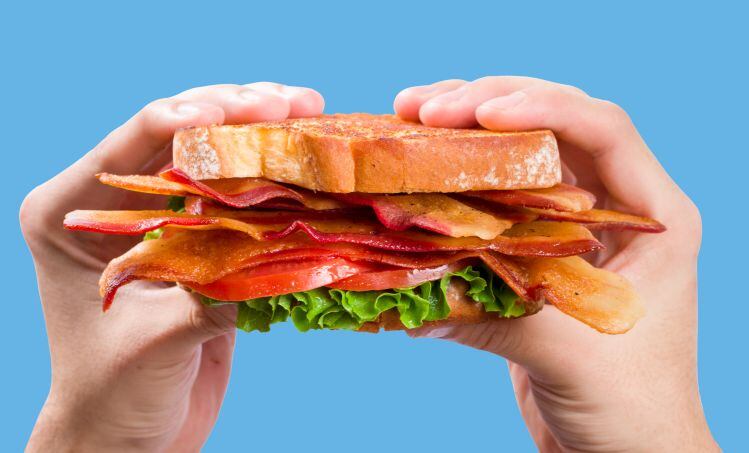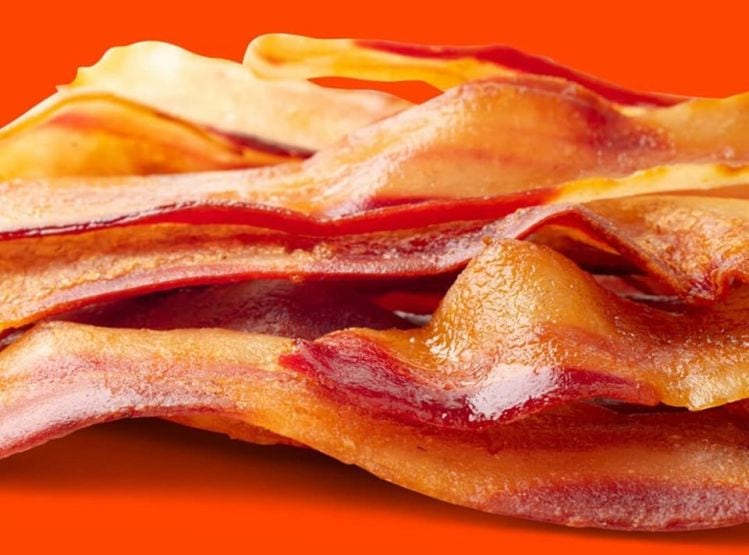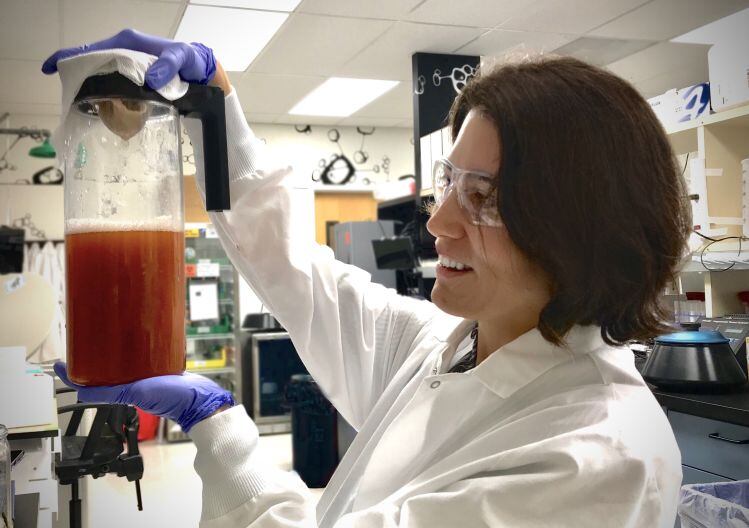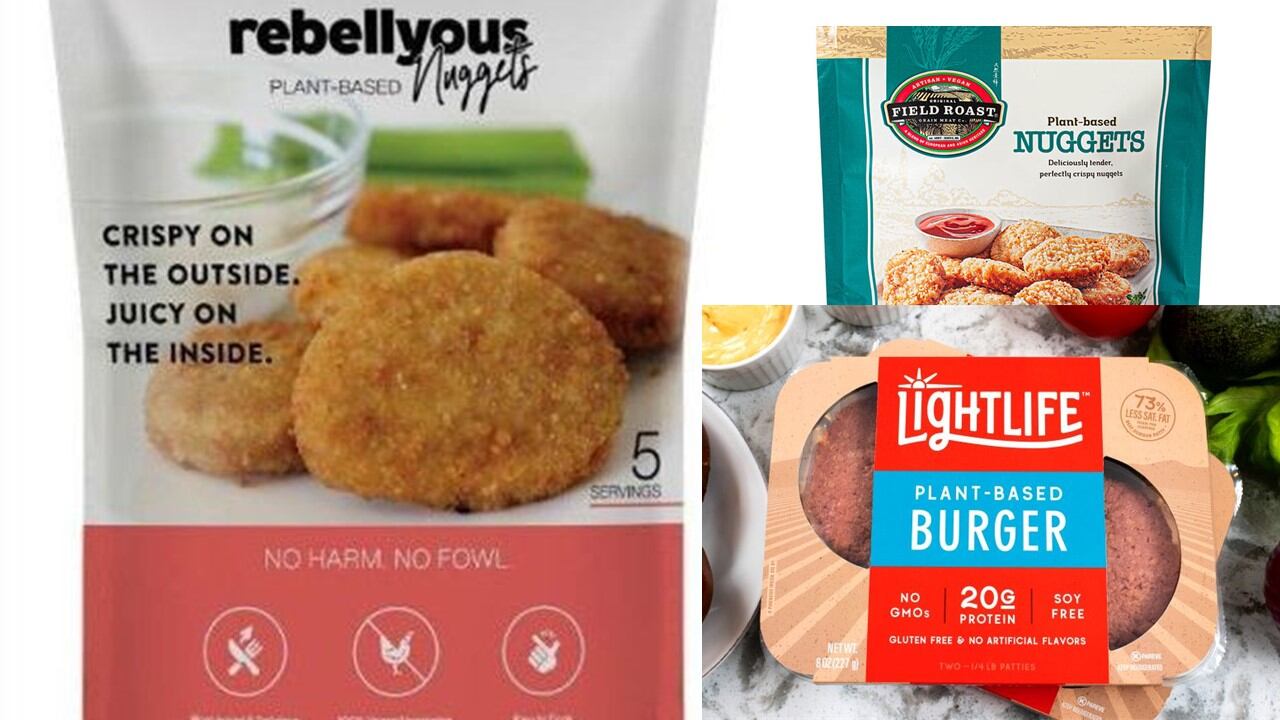“Most bacon is eaten outside the home, so our intention was to start with restaurants, as I really admired the approach Impossible Foods had taken [building a buzz in foodservice before moving to retail],” founder Sri Artham told FoodNavigator-USA.
“We’d just started with a co-packer in March and were about to sell to all these new restaurants in San Francisco, and boom, the pandemic hit. So we shifted our attention to grocery stores [although the company is still talking to prospective partners in foodservice].
“March and the beginning of April were rough because retailers were dealing with surging demand for toilet paper and sanitizer and just trying to keep products on shelf, but they got a handle on things very quickly and started thinking about the future again. So we’ve had a lot of virtual meetings.”
No one asks, ‘Why would anyone eat vegan bacon?’ anymore. It’s more like: ‘Is your product good enough?’
The fact that Hooray Foods is selling vegan bacon – a small but growing segment in plant-based meat - has also helped grab the attention of buyers, who are looking to build plant-based sets but already have plenty to choose from in the burger department, he said.
“When you go to a retailer that really knows this space, it’s kind of common knowledge that there isn’t a good bacon out there, so pretty much everyone we reach out to at least wants to try our product, which looks and cooks the most like [regular] bacon. I have the home addresses of a lot of buyers now as we’ve been shipping bacon to them [during the lockdown].”

While plant-based still only accounts for a fraction of the overall meat market, attitudes have changed significantly over the past 12-18 months, argued Artham, primarily because brands such as “Beyond Meat and Impossible Foods have paved this beautiful golden pathway for us to follow… no one asks, ‘Why would anyone eat this [vegan bacon]?’ anymore. It’s more like: ‘Is your product good enough?’”
No soy or wheat protein
Artham - who knows a thing or two about the food industry after spending eight years at Fair Trade USA, although he’s not a food scientist (his background is in systems design engineering) - uses coconut oil, rice flour, tapioca starch and seasonings to make his plant-based bacon, instead of the standard vital wheat gluten or soy protein base.*
The result is a product that looks and tastes distinct in the market, claimed Artham, who came up with his own recipes after watching Youtube University videos, signing up for a course on making plant-based meat from the Good Food Institute, and a lot of trial and error.
“You could say I took a bit of a naïve approach, but I’m still a meat eater and on the journey to going vegetarian and vegan, so to me what I enjoy most about meat is the experience, so rather that starting with nutrition, I started with trying to create the experience, and I think that’s what led me to a different place than many of the other products.”
Unique texture
When it comes to texture, Hooray Foods has had incredibly positive feedback from customers, said Artham.
Pretty quickly, said Artham, he learned that you “have to pick the right combination of starches that allow for strong bonds to be formed but also give you that pliable texture that bacon has.”
Hooray Foods bacon also has more fat than some other plant-based bacon products, which creates a different eating experience, although it still has a lot less than the animal-based version, he stressed.
“Real bacon is 30-50% fat, and our product is 20% fat, but that’s still higher than other plant-based bacon out there. We came up with a new way to encapsulate fat in a substrate, and we’re now looking at whether we can protect that, as we've tested and proven it can work in other applications beyond bacon."
Bacon: ‘Umami, salty and smoke and a hint of sweetness…’
Flavor has perhaps been the biggest formulation challenge, said Artham, who uses a combination of liquid smoke, shiitake mushrooms, salt, mushroom extract, and maple syrup to create the complex sweet and savory flavors bacon lovers expect.
“Bacon is special. It’s got a mix of umami and salty and smoke and a hint of sweetness, but we’re getting very close [to the real thing] now.”
‘Every time we scale up, we learn something new’
Artham, who began in his home kitchen and operated out of a commercial kitchen in the early days, has recently started working with a co-packer, which took some work, he said.
“It took quite a while to find one because our process is different, but we were fortunate to find a co-packer who is very innovative, who is focused just on plant-based, and it’s run by this really awesome guy who has been in the industry forever.”
But he added: “Every time we scale up we learn something new. By the end of July, our mostly automated line will be able to produce thousands of strips of bacon an hour. It can also be stored frozen, which is great.”
Fundraising in a pandemic
Hooray Foods – which counts Stray Dog Capital as one of its early investors – raised a pre-seed round late last year and is currently raising a seed round, said Artham, who said COVID-19 had changed the investment climate, although he’s confident of securing the capital he needs.
“We went from the point where investors were reaching out to us out of the blue every week or two, to a situation where they were saying we’re really focused on our current portfolio right now.”
*Morningstar Farms uses a base of egg white, soy, wheat and corn protein; Upton's Naturals uses vital wheat gluten; Lightlife uses soy and wheat; and Sweet Earth Natural Foods uses vital wheat gluten and adzuki beans. Atlast Food Co, by contrast, uses mycelium (the filament-like roots of mushrooms) to create its meatless bacon.





